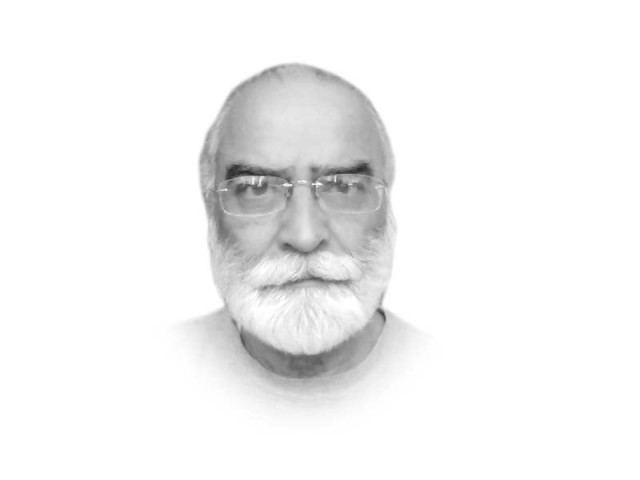For the earthquake survivors
Marx had said ‘history repeats itself, first as tragedy, second as farce’

The writer is a social activist and the National Coordinator for Pattan Development Organisation. The views expressed are his own. He tweets @BariSarwra
The story of Pakistan’s disaster management looks like a farce. Here are some facts.
Eleven years ago on October 8, a colossal earthquake jolted almost whole of Pakistan. It caused huge devastation in Islamabad, northern Pakistan and Kashmir. It affected as many as 3.5 million people, destroyed 7,83,587 houses and thousands of government buildings, including health and educational facilities. Nearly 85,000 people lost lives, including 900 teachers and 18,000 schoolchildren. The quake also left behind more than 80,000 severely injured people.
Five years later, the country was hit by another mega disaster — this time it was triggered by ‘unprecedented’ floods. It inundated almost one-fifth of Pakistan’s total land area, badly affected more than 20 million people, displaced as many as 1.4 million families and caused USD 34billion economic losses. Except 2016, since then every year Pakistan’s riverine belt — one of the most fertile lands having one of the poorest groups would suffer from flood disasters.
After the 2005 quake, neither the government nor the higher judiciary set up any commission of inquiry. But, in the aftermath of 2010 floods, along with the Supreme Court, the provincial governments, too, set up commissions. The purpose was to identify causes of the flood disasters. Except the Supreme Court the provincial governments never made the commissions’ reports public. I got the copies. The reading of the commissions’ reports reveals reason of the concealment.
While the rulers tried to cover their failure by blaming nature, despite separate and independent probing, all the commissions established a strong correlation between occurrence of disasters and corruption/poor governance. The commission reports also noted with great sadness that no lessons were learnt from the past tragedies.
The farce, the absurdity perpetuates shamelessly. Today, while we are mourning tens of thousands of deaths of the 2005 quake and worried about the well-being of the survivors, we also need to name and shame the culprits of this farce. The state, which fails to provide justice, is doomed to fail to have citizens’ trust. And the citizens who don’t rise against injustice are doomed too.
Though citizens come out to protest, we see them so often on TV screen — kissans, teachers, clerks, young doctors, nurses, lady health visitors and bhatta (brick klin) labourers, they don’t act together. Each group comes, protests and goes back.Hence, it makes little or no impact and resultantly, the status quo of corrupt officialdom returns with vengeance.
The survivors of the 2005 quake, too, hold protest demonstrations every year and then they are sucked back to their daily surviving chores. But, their anger continues to simmer. WHY?
Eleven years after, according to the Earthquake Reconstruction Rehabilitation Authority (ERRA) website by September 2016, 42 per cent livelihoods, 35 per cent health, 49 per cent environment and 40 per cent educational projects remained incomplete. This means tens of thousands of children and survivors are being deprived of educational, health and livelihood entitlements as they are waiting for the completion of the schemes.
The residents of Balakot — living in a declared red zone have also been waiting to shift to New Balakot City. But not silently, on every anniversary they too hold demos. Today they may be having one. Since Balakot was declared a red zone, no permanent structure could be built there. As a result, most public hospitals, schools and administration offices consist of temporary structures. This may be affecting quality of the services.
Of course the earthquake triggered the devastation but the real cause was not the quake, it was poor quality construction. The flawed compensation policy forced many affected people to reconstruct low quality houses again? As many as 49 per cent respondents of Pattan study (2015) on ‘Disaster Management and Governance’ said the concept of the ‘Build-Back-Better’ could not be materialised. An ERRA’s report corroborates our findings — as many as two-third houses were not built according to ERRA’s design.
These houses may not stand to next earthquakes. Therefore, appropriate measures must be taken to reinforce them. This is the only way to prevent tragedy to repeat itself.
Pakistan now has better management structures and legislation to cope with emergencies at the national level but hardly have anything substantial at lower level. Empower and let local councils manage disasters and to reduce risks. This will help plug the gaps.
Conclusion — in order to prevent tragedies from becoming farce, the authorities need to act on five critical issues. First, Act upon learnt lessons; second, accelerate completion of the remaining schemes; third, make sure all structures are quake resistant; fourth, synchronise disaster management legislation vertically and horizontally across the country; and finally, stop political interference in disaster management. Our civil society and media, too, need to improve their watchdog role on disaster management during normal times.
In the first week of November, UN-sponsored Asian Ministerial Conference on Disaster Risk Reduction will take place in New Delhi. What our state delegation (if attending)should say? Those who don’t learn from their own history are doomed to suffer.
Published in The Express Tribune, October 8th, 2016.
Like Opinion & Editorial on Facebook, follow @ETOpEd on Twitter to receive all updates on all our daily pieces.















COMMENTS
Comments are moderated and generally will be posted if they are on-topic and not abusive.
For more information, please see our Comments FAQ